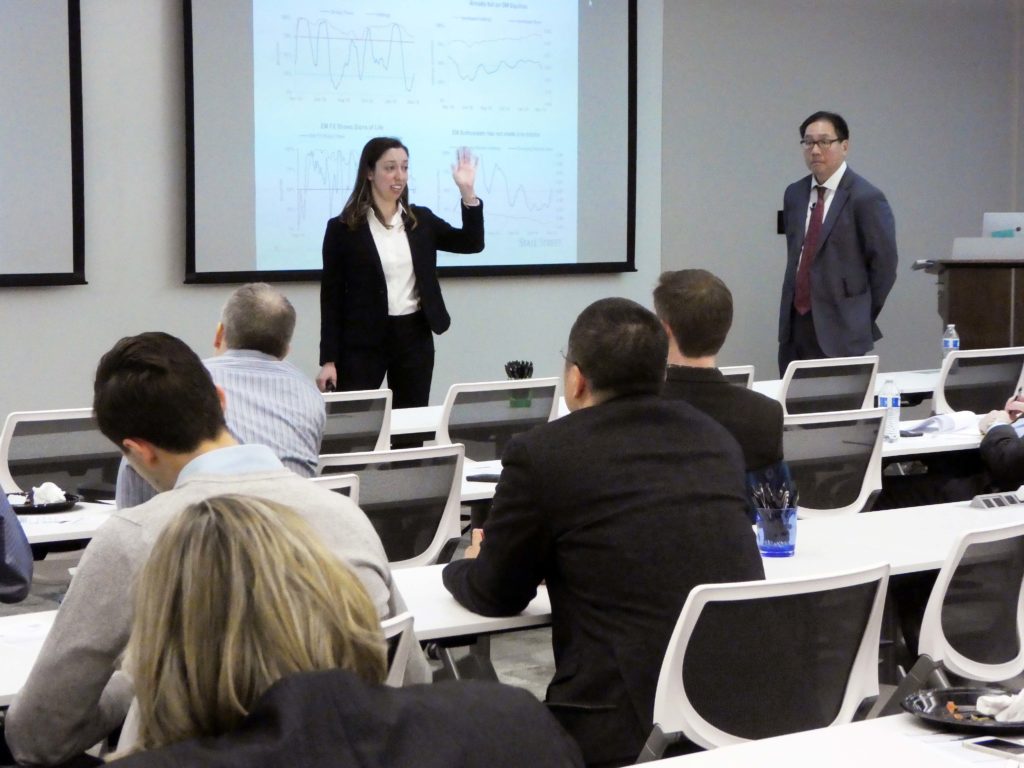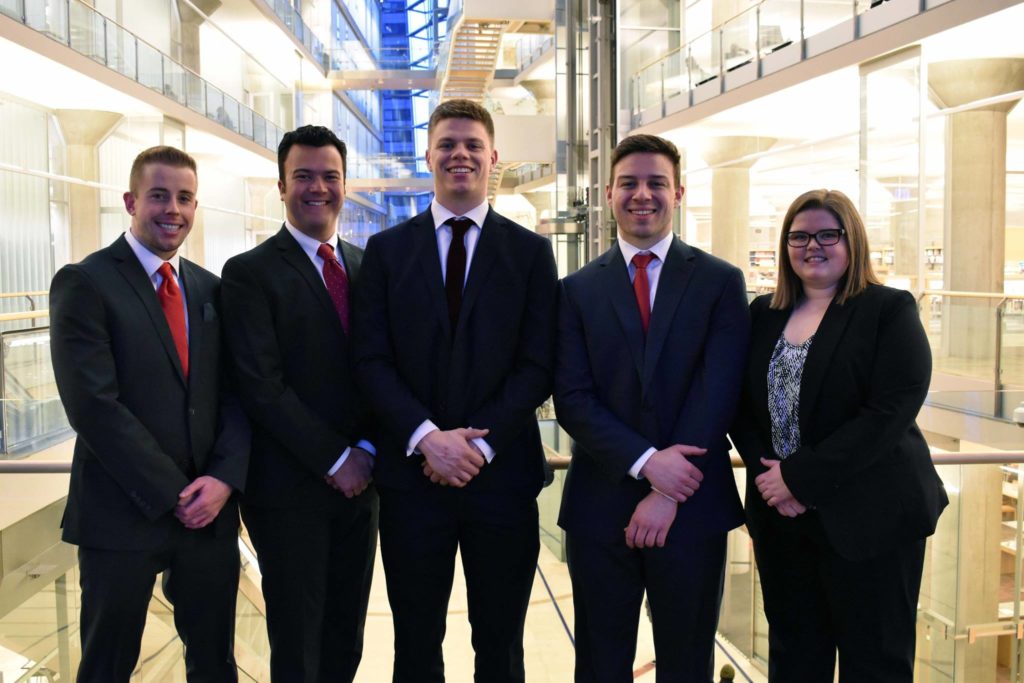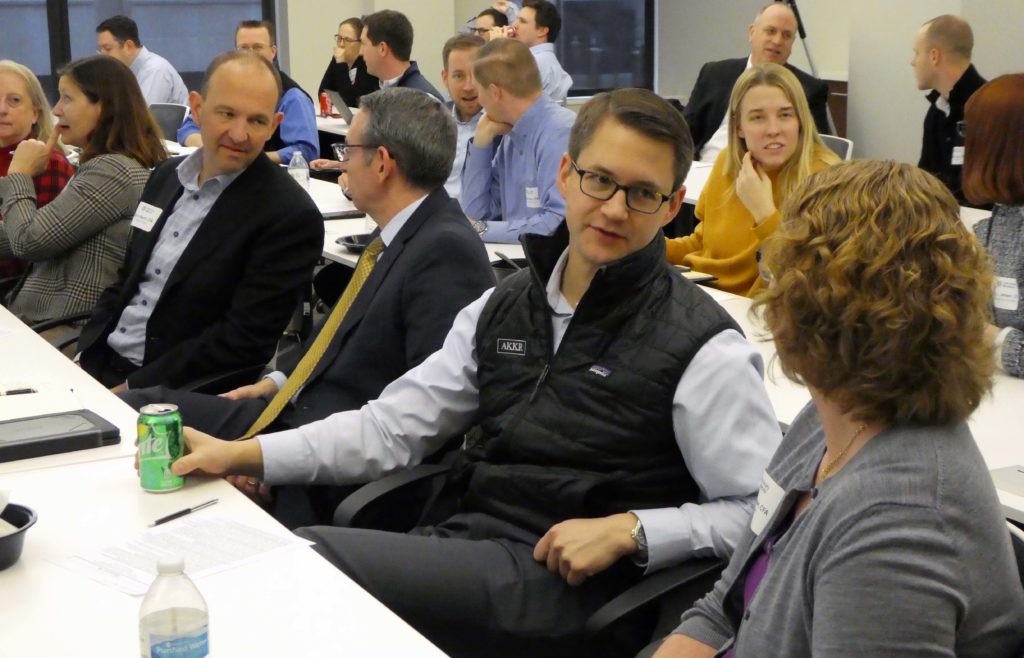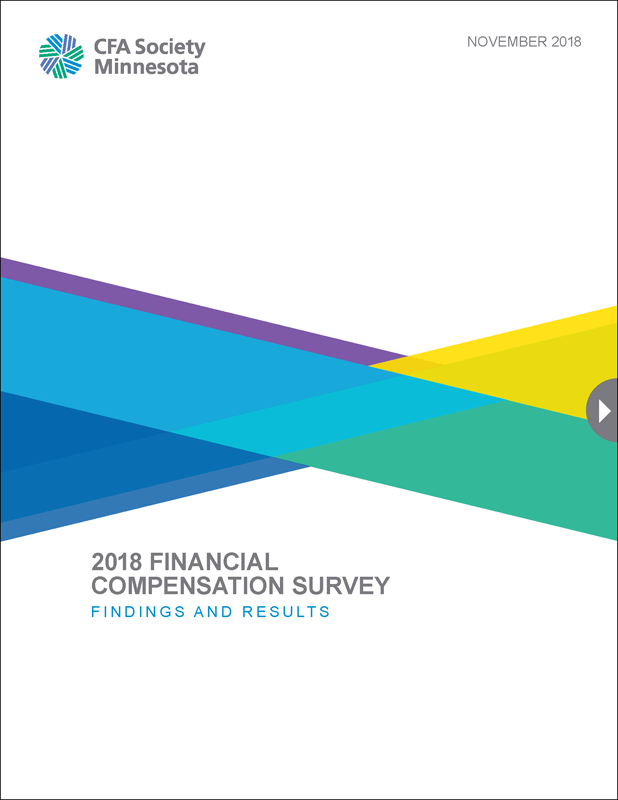By Eric Jacobs, Economics Student at the University of Minnesota

On Wednesday, April 3rd, the CFA Society of Minnesota had the privilege of hosting Marvin Loh, Senior Global Rates Strategist and Emily Weis, Emerging Market Strategist of State Street. Mr. Loh and Ms. Weis presented their ideas on central banks, global custodial flows, investor holdings, and more, in their presentation Breaking up is hard to do – Global Central Banks Struggle with Normalization.
They discussed how, for the first time since the crisis, central bank balance sheets are expected to shrink. However, in this new normal environment for central banks, balance sheets still remain historically high. The G4 bank balance sheet has increased 400% since the crisis. Of the major world banks, the Fed has made the biggest strides in reducing its balance sheet, while the ECB and BOJ still remain high. Yet, going forward, the Fed will begin to wind down its balance sheet selloff practice as they pivot more dovish. In 2021, Mr. Loh believes we will hit an inflexion point and the Fed will begin to expand their balance sheet again, to keep cash levels consistent with excess reserves.
What caused this shift? Market jitters can explain a lot. The volatility from the December 2018 selloff has not been seen since the crisis, and caution remains in the market as recessionary sentiment continues to grow. Also, some market charts may be signaling trouble. GDP growth begins to roll over after two years of gains, and global expectations are beginning to slow.
How did we get this environment? Trend productivity growth and wealth shifting help explain what we are seeing. Productivity has been continuing to fall among developed markets since the mid 1990’s, and when combined with declining aged population growth, this creates adverse effects on real GDP growth. The shift of wealth concentration can also help explain the new environment. In the current environment, labor income as a percent of gross domestic income is declining while corporate profits, as a percent of gross domestic income, rises. The lowest median household income earners are now seeing salary decrease annually. This leads to a decrease in developed market consumption growth. Given this effect, central banks are pushed to policy to replace income with temporary wealth effects, pushing assets into bubbles. Going forward, this leads to slow growth and longer business cycles. In the future, sector stagnation or stagflation may be the next challenge for central banks.
What are investors doing? In the emerging markets, investors are getting back into currencies, however we have yet to see flows back into EM stocks. In the equity market, most investor money is still sitting in domestic markets, and hasn’t made it back to emerging markets.
In fixed income markets, investors are still cautiously watching the yield curve. While inversions have predicted the last seven recessions, there is at least some reason to believe that this time could be different. In the last 7 inversions, 3m-10yr, 2y-10y, and 5y-30y spreads have all inverted before the recession. This has not happened yet, as only the 3m-10y has inverted. Additionally, in each of the last 7 inversions, the Fed continued to tighten the fed funds effective rate. The Fed is predicted not to tighten anymore, as they try to construct a soft landing. When State Street surveyed institutional investors on whether or not this inversion would lead to a recession, 33% didn’t see a recession, 33% saw one within 18 months, and the rest were mixed in the 3-12 month range. In short, institutional investors are still split on what this current inversion means.
Fixed income investors are buying U.S. treasury bonds across all maturities. From a holdings perspective, investors are holding the ends of the curve, possibly creating upside on the 3-7 year maturities. Emerging markets bonds are also seeing increased capital flows. In currencies, The US dollar is currently in a weaker position compared the DM currencies, but still remains one of the best risk hedges. The Euro remains on the low end of its average, but if Brexit goes relatively smoothly there is upside.








